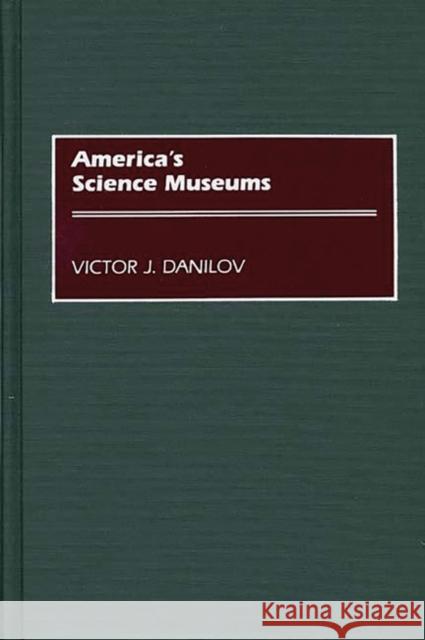America's Science Museums » książka
America's Science Museums
ISBN-13: 9780313258657 / Angielski / Twarda / 1990 / 496 str.
Danilov . . . is a preeminent authority on museums. According to Danilov, visits to science-related museums constitute 38 to 45 percent of all visits to museums in the U.S. . . . At the beginning of each section there is an introduction describing the history of that particular type of museum. Museum entries vary from about one-half page to two pages in length. A typical entry provides a history of the museum and description of the collection. . . . America's Science Museums is a well-designed book that can be recommended to all public and academic libraries. "Reference Books Bulletin"
Science museums, although they comprise less than 20 percent of the nearly 7,000 cultural institutions known as museums in the United States, have become America's most popular type of museum. From New Bedford to Waikiki, America's Science Museums assesses the nations scientific and technological museums and related institutions, examining their histories, operations, and offerings. This reference volume looks at the many different types of such institutions, including some that are not called museums but that are museum-like in their operations such as aquariums, botanical gardens, arboretums, planetariums, and zoos. In addition, some related facilities, such as marinelife and wildlife parks, and research sites with visitor centers, such as observatories and NASA space centers, are included. Most of the museums described in the twelve sections of this unique, comprehensive guide were selected because of their stature in the field, while others were included because of their age, specialty, or novelty. Overall, the museums detailed here represent a cross-section of the rapidly expanding science museum field, and they illustrate why science museums have become so popular and instrumental in furthering science literacy across the U.S.
The book's twelve sections focus on aquariums, marine museums, and marine-life parks; aviation and space museums; botanical gardens, conservatories, and arboretums; industrial history museums; maritime and naval museums; medical and health museums; natural history museums; planetariums and observatories; science and technology centers; transport, automobile, and railway museums; zoos and wildlife parks; and other science/technology museums. Thorough descriptions of the 480 museums and related institutions provide comparative information on the nature, development, facilities, collections and offerings of each. An ideal reference for college courses dealing with the history, philosophy, collections, exhibits, operations, and management of museums and for other researchers seeking background information and insight into the special merits of the leading institutions in the fields of science and technology.











